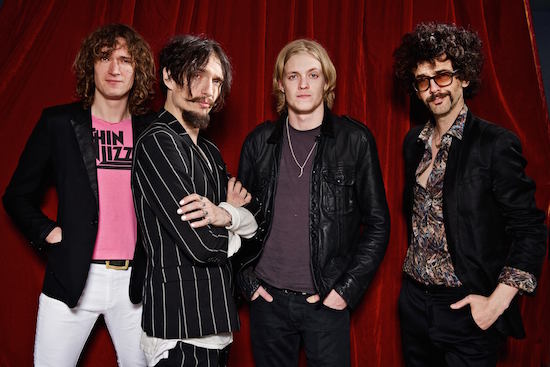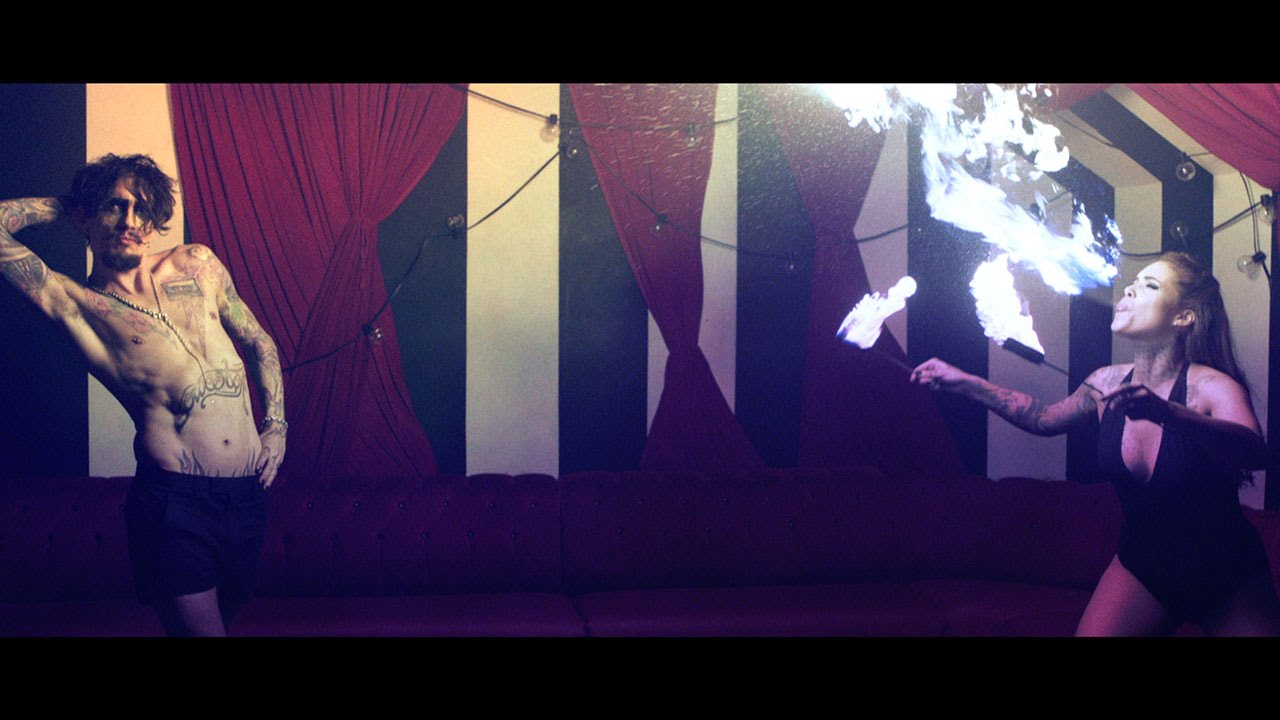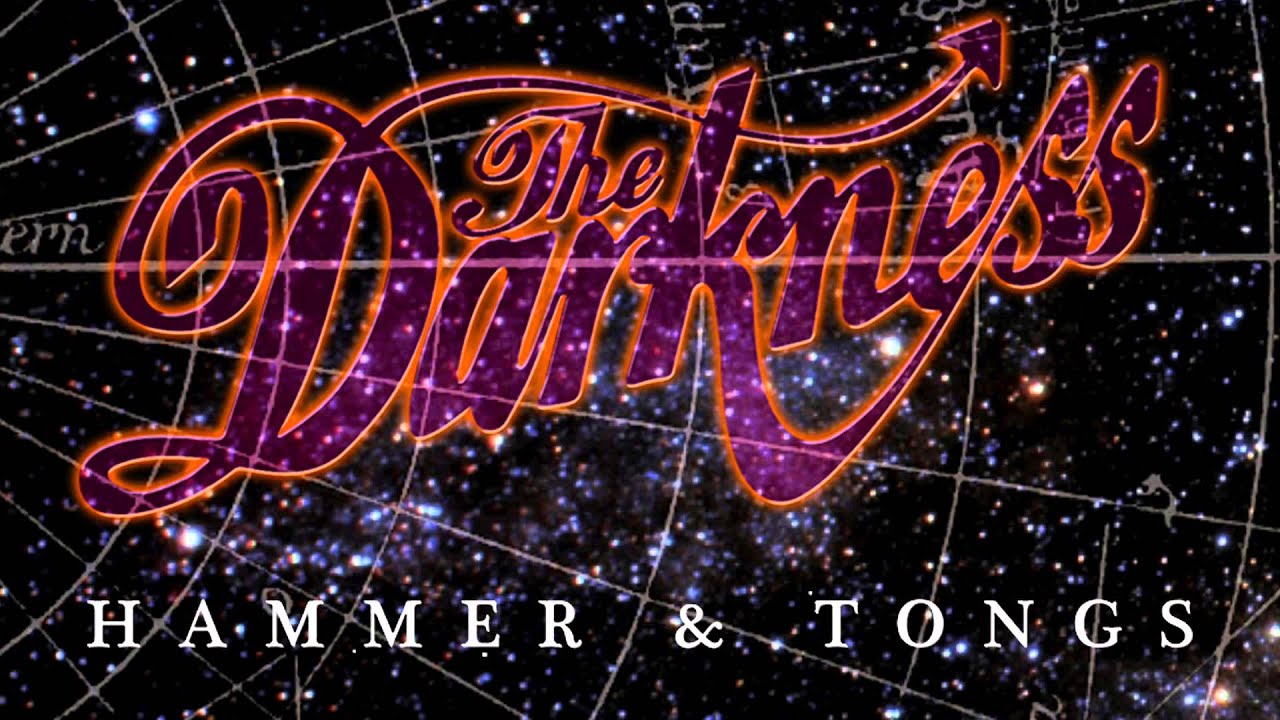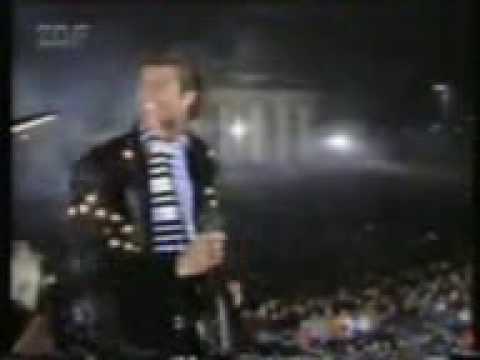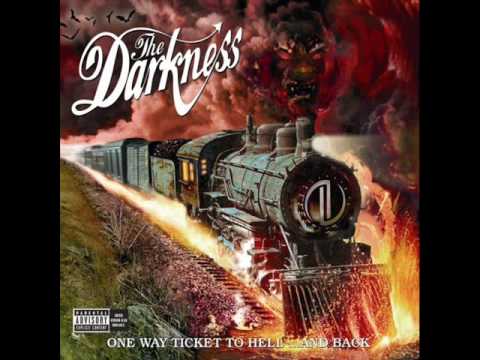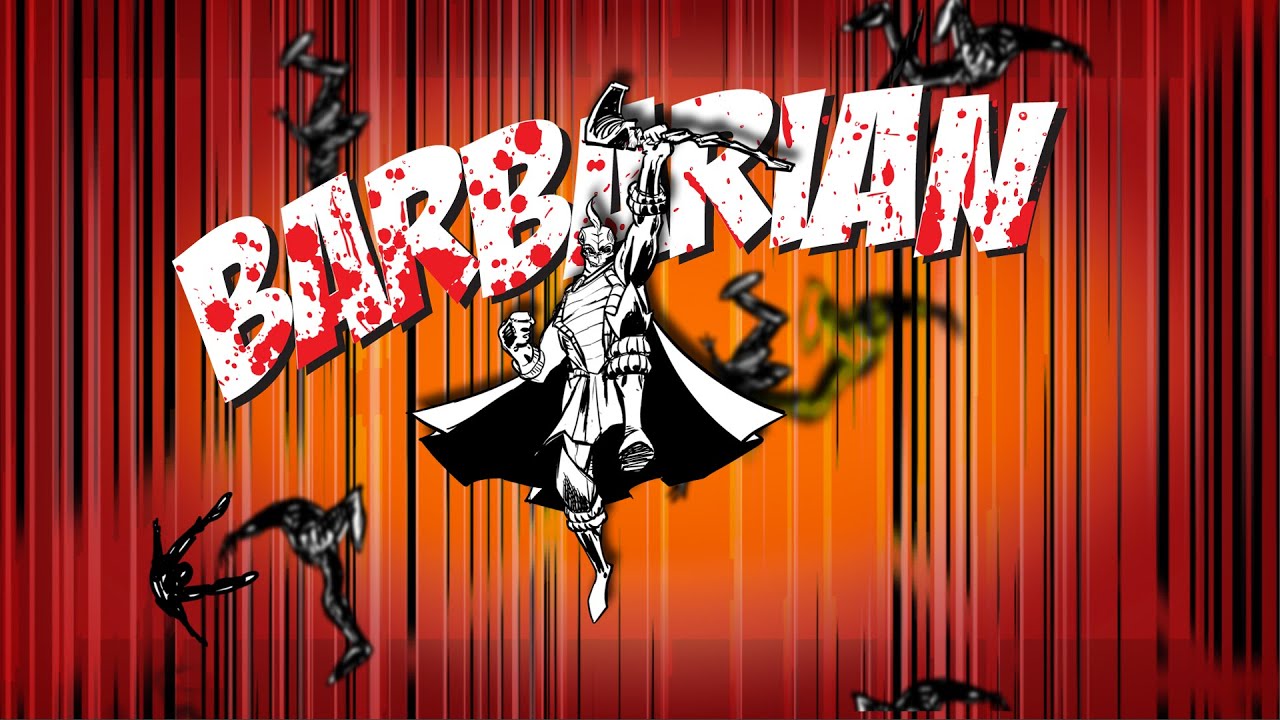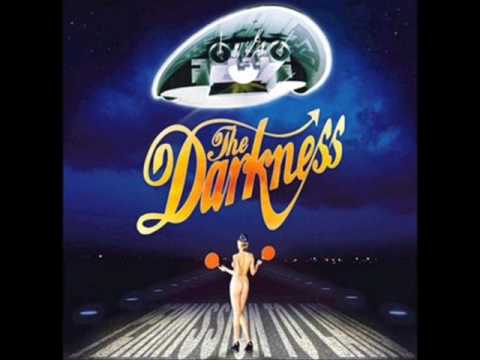High camp, idiosyncratic and native sons of the foreboding flatlands of East Anglia, The Darkness remain one of the most entertaining hard rock bands around. Forthcoming album Last Of Our Kind finds them on stern form, delivering both their heaviest material thus far and also peppering the stadium-sized bombast with a darker edge. Check single ‘Open Fire’ for a taster, all Cult-esque melodic dramatics and pumping rhythmic thrust that will no doubt delight the faithful. Because, while the band have long been unburdened by the tabloid mania they initially courted (though still laden with the undeserved ‘joke band’ tag) they retain an incredibly devoted following. Indeed, it bears remembering that between the years 2003 to 2005, they were something of a mainstream phenomenon. Singles were on heavy rotation on the radio; paparazzi followed Justin Hawkins around; a Christmas single was released; stuffed white tigers were ridden from the rafters of Earls Court.
Their 2003 debut album Permission To Land garnered widespread acclaim and attendant sales. It was a record that combined the operatic opulence of vintage Queen with a powerful crunch and – alongside the puns and lyrical japery – a surprisingly honest emotional bent. Single ‘I Believe In A Thing Called Love’ was perhaps always destined to become irritatingly ubiquitous, but the likes of ‘Black Shuck’ (telling the tale of the fabled fenland ‘big dog’) and ‘Friday Night’ (chronicling the many and varied afterschool pursuits of a young Justin Hawkins) proved irresistible and made for an interesting lyrical duality, one that Hawkins has riffed on ever since: gawky kitchen-sink humour/social realism interspersed with overblown metallic myth and legend. Belle and Sebastian meets Dio? No – that would be hideous – but you get the point.
Two years later, One Way Ticket to Hell… And Back was less rabidly received (though eventually went platinum) but is a fascinating record nonetheless. It counts as one of the most lavishly produced albums of the past few decades, with former Queen producer Roy Thomas Baker taking his overdubs and maximalist chops to a truly preposterous level (a process that saw, among other things, up to 1,000 tracks utilised on a single song, custom-built panpipes and Justin Hawkins singing into a champagne bucket, according to his fascinating Sound On Sound interview).
The attendant, widely documented bacchanalian excesses of the accompanying tour proved difficult to manage for all involved and an initial split came for The Darkness in 2006, forging a saga of sibling acrimony, bitterness, chemical excess and rampaging ego. A hyperreal dayglo ascendancy followed by brutal attendant crash, the Darkness story up to this point felt both strangely befitting of the band’s modus operandi, but also sad. Bassist Frankie Poullain was sacked, Justin Hawkins went into rehab and left the band, going on to form the ill-fated Hot Leg, while Dan Hawkins and former drummer Ed Graham recorded and toured with new band Stone Gods. Neither band came close to matching their previous group’s colossal popularity, however, and in 2011 The Darkness reformed, taking in a triumphant homecoming gig, playing second on the bill to Def Leppard at Download, releasing a strong third LP, Hot Cakes, in 2012, and supporting Lady Gaga on her world tour the same year.
Now, just before the release of Last Of Our Kind, the Quietus finds Justin Hawkins in relaxed, honest and affable form in the basement of The Gibson Rooms in Fitzrovia, where we discuss the genius of David Hasselhoff, the influence of The Cult and the spiritual significance of East Anglian folklore.
The new record is the heaviest I’ve heard from you. I got a real Cult-type vibe on some of the tracks, particularly ‘Open Fire’. Is this fair? Are you a big fan?
Justin Hawkins: I definitely hear what you’re saying about The Cult, which I’m really happy about actually because I’m a huge fan of theirs, and I’ve been listening to them a lot recently. When I was growing up I loved Electric and then worked back to Love. Sonic Temple is one of my favourites though, because it sits somewhere between L.A. rock and proper goth rock, which is just brilliant. And you’ve gotta love Ian Astbury and his take on Native American wisdom – it’s such a great blend! This album is certainly pretty heavy, much more stripped back; we just turn the Marshalls right up.
Ian Astbury is one of those people I think of as eternally transatlantic; totally L.A.. I can’t imagine him in England.
JH: They’re a strange band, The Cult. A bit like Queen… there are so many elements that you could never copy it. I was lucky enough to meet Billy Duffy a few years ago, actually. I love his playing and the way he looks is amazing. I loved him; it was one of those experiences when you meet one of your heroes and they turn out to be fantastic. I was working – songwriting on a Meatloaf album – and somebody said do you want to come and meet Billy Duffy and eat some sushi. ‘Yes. Yes, I do’! We went for coffee and he drove me about for a bit, I played his guitar in his flat. It was one of the best nights of my life. I’m glad that influence is coming through.
It is indeed – as is Status Quo on ‘Hammer & Tongs’. I love that song, it is quite absurd.
JH: I like that song too. I don’t actually see it as a silly song at all though. It’s actually the loosest-sounding tune on the record; it has a bit of a Stones/Quo vibe, so in a sense it’s the coolest song on the record, the easiest.
I’ve got a plan for it. I want to do a ‘Dancing In The Street’-type scenario with me and David Hasselhoff singing together. There are two sides to it. The first thing is purely cynical, in that he commands the German territories [laughs], but the reason that he sold all those records is because he did two television programmes – Knight Rider and Baywatch – that represented two different decades. He’s incredible, he caught the zeitgeist.
But what’s truly brilliant is the performance he did of a song called ‘Looking For Freedom’ sung on top of the Berlin Wall. Have you seen it?
No, I’ll have to check it out.
JH: You must! He sings it really well. I love that he has these things in his past, these moments of total glory; somebody like Jon Bon Jovi might look into the past and see the massive hair and be a little ashamed, but Hasselhoff embraces his past, he really embraces who he is. He can really, properly, sing as well. He’s a fucking genius.
Your brother Dan produced the new record. How have you found the experience? I was reading an extraordinary article with Roy Thomas Baker in Sound On Sound when I was researching this interview. He was talking about recording One Way Ticket… and the scale of production on that record was quite staggering. Did Dan pick up any tips?
JH: The thing with Roy, when we did that second album, we all knew that we would only get one opportunity to do an album in that particular way. I personally don’t think the songs on the record are particularly strong, but the experience of it – and what we learned – was absolutely priceless; Roy is just a hilarious person. We really loved his company. Initially we didn’t dare ask to work with him and we didn’t think he had the time, but in the end he wanted to do it and he really lavished the time on us.
Everybody paid for it in the end: it was an unbelievably expensive process, but just to watch him work was amazing. And I think Dan learnt a hell of a lot from Roy. Roy actually helped out with building Dan’s home studio as well. His influence is everywhere in what we do, he is hugely capable. The weird thing is, at the time, he actually wanted to make an album that was built around riffs; something far more stripped back than what we ended up doing on One Way Ticket…. He kept saying to us, ‘Why don’t you just do some riffs?’ and we had to say to him: ‘Well, we haven’t really got anything like that’.
Dan has definitely taken a lot of those techniques on board – he knows a lot about gear, but these days we only add things if we think it’s really needed.
There is a far bigger bottom end on this record. You have Frankie’s bass sitting right up in the mix. Was this something you wanted to experiment with?
JH: Frankie has become so much better at playing over the years that we have to have him more prominent now, it would be crazy not to. He’s really studied his technique and his playing is great. Also, we had Emily drumming on the record [since this interview took place, Emily Dolan Davies has left the band, and Rufus Tiger Taylor, the son of Queen drummer Roger, has joined] and she also brought a different feel to the playing.
You’re also experimenting with your vocals, singing in a slightly lower register on some of the tracks?
JH: There was a fair amount of lower stuff on the second and third records, too. I just sing along with what’s there, to be quite honest – though it’s always more comfortable for me to scream something! I think that technique comes from when we were starting out doing demos. I started out with a fairly bombastic vocal style just because it was easier to work ideas out that way and the guys really enjoyed it, so I’ve stuck with it ever since.
Do you have to live a monkish existence to maintain it?
JH: Fags are my only vice these days, and I can’t smoke on the road really. I suffered terribly with acid reflux in the past though, which was really bad for my voice.
Apparently Lionel Richie used to get that. He used to eat ice cream before he went to bed, which would gurgle up around his vocal chords and cause loads of problems. It took doctors ages to work out what was happening.
JH: Really? It can be a fucking nightmare for a singer. I had an operation, keyhole surgery, but you need to watch what you’re eating.
I’m interested in your lyrical themes. As an East Anglian native, I enjoy the fact that you consistently discuss Anglian folklore. Do you feel this to be something of a sacred duty? I love the spoken-word passage at the beginning of ‘Barbarian’ on the new record.
JH: I do, actually. I feel it a personal mission to put East Anglian folklore on a global stage! I always have done. Things like ‘Black Shuck’, ‘Stuck In A Rut’, ‘Barbarian’ – they’re all incredibly East Anglian. ‘Barbarian’ is about the Viking raids in the region, Ivar the Boneless’ defeat of Edmund the Martyr’s army.
The spoken-word passage at the beginning actually comes from Dan’s gardener. He’s a proper old Norfolk boy, his accent is quite incredible. And that is the most intelligible that you’re ever going to hear him! He has the most full-on Norfolk accent imaginable. He’s also really into amateur dramatics. He came in from digging the garden, straight into the studio to do it. He was really up for it.
The Darkness enjoyed huge success early on. Aside from manufactured bands, I can’t think of anyone who had a swifter ascendancy. How did it feel? Was it partially terrifying?
JH: Not terrifying, not at all. At the time we were so determined. We were so focussed that we weren’t surprised by it. It’s what we were working towards and we had this one ‘year of opportunity’ and we did everything that we possibly could, everything that we had time to do.
It’s funny, because it could have actually been bigger than it was. There was a lot of stuff that we had to turn down, there were two particular soundtracks that we were asked to do – Spider-Man and Hellboy – and we couldn’t do it. I would’ve loved to be able to make inroads into that world and do that too, but it didn’t happen because we were always working, there was no let up. It was quite an interesting time. It’s never been like that since… and it certainly wasn’t like that before!
And how about the tabloid thing, finding yourself at the centre of that world of celebrity?
JH: There is that thing where people say: ‘Oh, they build you up and knock you down’ and I think that’s true in the music press – but it wasn’t true for us with the tabloids. I actually think we had a very good relationship with the tabloids, they were really quite fond of us and it was more like they were laughing with us – and at us, at times – but it was very lighthearted, none of it was particularly viscous or personal. They’d say mean things about my teeth but it never got particularly vicious.
I certainly made mistakes around that time – speaking about things that have subsequently hindered my life – and I really wish I’d just kept my fucking mouth shut a bit more: but that was my fault, not theirs. I never felt they turned against us in that respect. It was more a case of less people being interested in us. They just stopped talking about us. I would have liked to have been ‘the villain of the piece’! In a way, I would have embraced that role, I was waiting for it; I was ready to be the biggest fucking cunt you’ve ever seen but unfortunately, I didn’t get the opportunity!
And what caused that initial split?
JH: We lost focus, [and] part of it was the game. It all just became less enjoyable because we weren’t concentrating on the important things. I mean at the moment, for example, we can go into a studio anywhere in the world and there are no distractions because people aren’t particularly interested in us. We don’t have to hide our identity because there is nobody pestering us; nobody really cares, so it is up to us to care. You have to remember that a tabloid readership is absolutely not a fan base, and to give a shit about them is crazy.
It’s kind of difficult to answer that question, because that stuff has been talked about too much and it’s difficult to talk about those times without being reminded of the bile and all the horrible things that happened but, suffice to say, at the moment, despite all of the bad stuff that happened, we can go through line-up changes or whatever and nothing really dents the enjoyment now. There is pressure in that we have families to feed, but I think there is a way to exist now, on a very different level.
Can you tell us about supporting Lady Gaga on her 2012 tour? I was at the Twickenham show and you went down incredibly well. I suppose I was envisaging a load of tribal teens only interested in Gaga, but it was nothing like that. My wife and I were surrounded by gurning Italian drag queens, and they were all loving your set…
JH: We were on the whole of her European tour and the South American leg and it was just brilliant. I mean, to be honest, there are contrasting views in the band on that tour, because it happened when we were supposed to be out promoting our new album at the time, Hot Cakes; we were out with Lady Gaga at the exact same time. So in one way it was the worst possible time to be touring like that but – to me – it was the biggest possible tour that was out there at the time and there was no possible way that we could turn it down; for me it was a no-brainer.
But my brother did correctly say: ‘Hold on, we’re supposed to be promoting our album.’ I mean, some of the shows we did had the stony-faced, middle finger-raised kind of vibe, which was just awful, but we gradually won them over and by the time we played the Stade de France it was just fucking awesome, incredible. It was like [adopts newscaster voice]: ‘The Darkness are playing at the Stade de France’! That was all you had to know at that moment, same with South America, which was just brilliant – all those shows were amazing. And Gaga herself, she’s incredible, a work of art.
Permission To Land was released on the cusp of the entire recording industry changing for good. It felt almost like one of the last big, ‘hard copy’ albums released in this country. You’ve seen seismic shifts…
JH: When we were coming through there was still the vestige of a recording industry. And we were among the last of that type of industry, absolutely. It’s just all changed so much that nobody knows what is happening; nobody knows what the fuck is going on. It’s always been a changing industry, but you just hear so many conflicting points of view. Now, we’ve decided to work doing our own label through Kobalt, which is a truly forward-thinking, transparent business model, where you know exactly where the money is going, you mutually agree every marketing decision in advance and that is an absolutely incredible feeling. You have a little portal where you can see exactly what is going on with anything, in real time. The polar opposite of working with a major label, basically, where nothing is ever to your favour. Ever, ever [laughs].
All of our eggs are in the Kobalt basket now, which is brilliant because in this period of great confusion, you have to find your way through this bizarre industry that nobody truly understands, guessing yourself, trusting your own instincts.
Was there a moment that you saw things begin to drastically change?
JH: When a major label starts asking for a bit of your merchandise, that is always alarming [laughs]. Or when a label starts asking for a bit of your live income. There is no reason whatsoever for a label to be asking for any of that stuff, and literally the only reason they do is because they’re making less money from record sales. You have to have an established live set-up before a label is even interested in you – the only reason that they would want some of that is because they can’t actually sell records anymore.
Does it irritate you that The Darkness are still sometimes seen as a ‘novelty’ or a ‘joke’ band? Because you obviously take your music incredibly seriously. Take a band like AC/DC – their lyrics are often dafter than yours – or Motörhead, but nobody ever says: ‘Oh, AC/DC are a joke, Motörhead are a joke’.
JH: Absolutely, or even down to Queen or Led Zeppelin. I used to be annoyed by that but yeah, take AC/DC, they’re a genre in their own right. You hear anything stripped down and you think, ‘Oh, thats AC/DC-style’. But that’s a tiny little man in a school uniform running about while a strapping great Geordie belts out sexual euphemisms, and it’s fucking great! And it’s not supposed to be serious, it really isn’t… I think that side of it is something that we enjoy, but the things that people dislike us for are always going to be the things that other people like. And some people get disgusted if you change things up, bring in a William Shatnerism or a Serge Gainsbourgism or a Van Morrisonism. This is seen as somehow ‘wrong’.
It can be staggeringly conservative – the classic rock world – the idea of the sacred canon, poured over for eternity.
JH: For something that is supposedly rebellious, it’s like a religion. I don’t like stuff that is totally and absolutely retro.
Do you feel a pressure to ‘amuse’, as it were?
JH: My job is to educate, to titillate, to amuse… and to sadden.
Last Of Our Kind is out now on Canary Dwarf Records via Kobalt Label Services. The Darkness launch the album in Dingwalls in London tomorrow, June 3, before playing festivals in the summer and a UK tour in November; head to their website for full details

